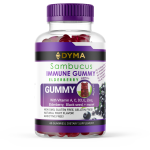
Nutrition is the fuel that powers our bodies, keeping us healthy and vibrant. Have you ever wondered why nutrition is so important? Well, it’s simple! Good nutrition provides the essential nutrients our bodies need to function properly and stay strong. From boosting energy levels to preventing diseases, let’s dive into the fascinating world of nutrition and uncover its incredible benefits!

Content
The Importance of Balanced Nutrition
Proper nutrition is the foundation for a healthy and thriving life. It involves consuming a well-balanced diet that provides our bodies with the essential nutrients they need to function optimally. Let’s explore why balanced nutrition is crucial for overall health, disease prevention, and promoting physical and mental well-being.
Role of Macronutrients: Carbohydrates, Proteins, Fats
- Carbohydrates: These are our body’s primary source of energy. They fuel our brains, muscles, and organs. Opting for complex carbohydrates found in whole grains, fruits, and vegetables ensures sustained energy levels throughout the day.
- Proteins: Proteins play a vital role in building and repairing tissues in our body. They also contribute to hormone production and support immune function. Including lean meats, legumes, dairy products or plant-based protein sources like tofu or quinoa helps meet daily protein requirements.
- Fats: Contrary to popular belief, fats are an important part of a healthy diet too! Healthy fats such as those found in avocados or nuts provide essential fatty acids that aid in nutrient absorption while supporting brain health and hormone regulation.
Micronutrients: Vitamins & Minerals
Micronutrients may be needed in smaller quantities compared to macronutrients but their importance cannot be overstated:
- Vitamins assist various bodily functions such as boosting immunity (vitamin C), maintaining strong bones (vitamin D), or promoting good vision (vitamin A).
- Minerals like calcium help build strong bones while iron supports oxygen transport within the body.
A well-rounded diet rich in fruits, vegetables, and whole grains along with other food groups ensures adequate micronutrient intake necessary for optimal health.
Benefits of Proper Nutrition
- Physical Well-being: Eating nutritious foods aids weight management by providing necessary nutrients without excess calories. It also supports a healthy immune system, promotes cardiovascular health, and reduces the risk of chronic diseases.
- Mental Well-being: Good nutrition positively impacts mental health by supporting brain function and mood regulation. Nutrients like omega-3 fatty acids (found in fatty fish) or antioxidants (abundant in fruits/vegetables) have been linked to improved cognitive function and reduced risk of depression.
maintaining a balanced diet that encompasses all essential macronutrients, and micronutrients is vital for overall well-being. By prioritizing our nutritional needs, we can enjoy better physical health, sharper mental acuity, and an increased quality of life.
Key Nutritional Components
In order to understand the importance of nutrition, it’s crucial to delve into the key components that make up a healthy diet. Let’s explore carbohydrates, proteins, fats, vitamins and minerals, as well as hydration, and discover how they contribute to our overall well-being.
Carbohydrates: The Energy Providers
Carbohydrates are our body’s primary source of energy. They can be classified into two types: simple and complex carbohydrates.
- Simple Carbohydrates are found in foods like sugar, candy, and sweetened beverages. While these provide quick bursts of energy, they lack essential nutrients.
- On the other hand,** complex carbohydrates**, such as those found in whole grains (oats or brown rice), fruits, and vegetables (sweet potatoes or spinach), offer sustained energy while providing fiber, vitamins, and minerals.
By emphasizing the consumption of whole grains along with a variety of colorful fruits and vegetables, you ensure your body receives optimal nutritional benefits while maintaining steady energy levels throughout the day.
Proteins: Building Blocks for Growth & Repair
Proteins play a vital role in building tissues, muscles, enzymes, hormones, etc. They are composed of amino acids which act as building blocks for growth, renewal, and repair within our bodies. Examples include lean meats(chicken, fish), legumes(lentils, kidney beans), and dairy products(yogurt, cottage cheese). Including protein-rich foods in your diet helps support muscle development, tissue repair, and overall bodily function.
Fats: Differentiating Healthy from Unhealthy
Fats have long been misunderstood, but it is important to distinguish between healthy fats(unsaturated)and unhealthy fats(saturated/trans fats).
- Healthy fats, found in avocados, nuts/seeds, and salmon are beneficial for heart health, balance hormone production, and aid nutrient absorption.
- Conversely, unhealthy saturated/trans fats found in processed snacks or fried foods should be consumed in moderation to reduce the risk of cardiovascular diseases.
By incorporating healthy fats into your diet while being mindful of portion sizes, you can maintain a well-rounded and heart-healthy nutritional intake.
Vitamins & Minerals: Essential for Optimal Health
Vitamins and minerals are micronutrients that our bodies require in smaller quantities, but they play critical roles in maintaining good health.
- Vitamins such as vitamin C (found in citrus fruits) boost immunity, while vitamin D (from sunlight or fortified dairy products) supports bone health.
- Minerals like calcium(from dairy products), iron(from lean meats or spinach), and potassium(found in bananas)are essential for various bodily functions including bone strength, oxygen transport, and nerve function.
Ensuring a diverse diet filled with fruits, vegetables, dairy products, and other nutrient-rich sources helps provide adequate vitamins and minerals necessary for optimal health.
Hydration: The Power of Water
Hydration is often overlooked yet a crucial component of proper nutrition. Drinking enough water is vital for optimal bodily functions, constantly replenishing fluids lost through sweating, breathing, and digestion. Herbal teas or infused water provide additional hydrating options without added sugars or calories, serving as refreshing alternatives to plain water.
By recognizing the importance of hydration and making conscious efforts to drink an adequate amount each day, you support overall bodily functions, maintain energy levels, and promote healthy skin.
.
Benefits of Good Nutrition
Maintaining a well-balanced diet is not just about satisfying our hunger; it has far-reaching benefits for our overall health and well-being. Let’s explore the numerous advantages that good nutrition brings to our lives.
Weight Management: Finding Balance
Balanced nutrition plays a crucial role in weight management. By providing necessary nutrients without excessive calories, it helps maintain a healthy weight. Strategies such as portion control can further support weight management goals.
Eating nutrient-dense foods like fruits, vegetables, whole grains, and lean proteins ensures you feel satisfied while consuming fewer calories. This approach prevents overeating and promotes long-term weight maintenance.
Energy Levels & Performance: Fueling Your Body
Proper nutrition fuels our bodies with energy for everyday activities and enhances exercise performance. Including foods that boost energy levels is key to sustaining vitality throughout the day.
Complex carbohydrates found in whole grains provide sustained energy release while being rich in fiber and essential nutrients. Incorporating sources of lean protein like chicken or beans aids muscle repair and growth after physical activity.
Disease Prevention: Nourishing Defense Mechanisms
Good nutrition significantly reduces the risk of chronic diseases such as heart disease, diabetes, and certain cancers. A nutrient-rich diet provides the building blocks needed to support optimal bodily functions.
Including antioxidant-rich fruits (berries) or vegetables (spinach) helps combat oxidative stress linked to various diseases. Healthy fats from sources like avocados or fatty fish contribute to heart health by reducing inflammation within blood vessels.
Mental Health & Cognitive Function: Feeding the Mind
Nutrition also has an impact on mental health, mood regulation, and cognitive function. Consuming specific nutrients supports brain health and emotional well-being:
- Omega-3 fatty acids found in fatty fish (salmon), chia seeds or walnuts have been associated with improved cognitive function.
- Antioxidants abundant in colorful fruits/vegetables protect against free radicals that contribute to mental decline and support overall brain health.
By prioritizing proper nutrition, you can nourish your mind and body, improving mood stability, cognitive function, and overall quality of life.
good nutrition offers a host of benefits. From weight management and sustained energy levels to disease prevention and improved mental well-being, the power of healthy eating cannot be underestimated. By making mindful choices about what we consume, we empower ourselves to live happier, healthier lives.
Conclusion
In a world where fast food and convenience take center stage, it’s easy to overlook the importance of nutrition. But let’s not forget that what we put into our bodies directly impacts our health and well-being. By prioritizing good nutrition, we empower ourselves to lead vibrant lives, full of energy and vitality.
FAQs
u003cstrongu003eIs nutrition really that important for our overall health?u003c/strongu003e
Absolutely! Nutrition plays a crucial role in maintaining optimal health by providing essential nutrients needed for bodily functions, disease prevention, and promoting physical and mental well-being.
u003cstrongu003eCan’t I just rely on supplements instead of focusing on nutrition?u003c/strongu003e
While supplements can be beneficial in certain cases, they should not replace the importance of a balanced diet. Whole foods contain a wide range of nutrients that work synergistically to support our health effectively.
u003cstrongu003eDoes good nutrition only matter if you’re trying to lose weight?u003c/strongu003e
Not at all! Good nutrition is vital for everyone, regardless of their weight goals. It supports overall health, boosts energy levels, enhances brain function, and reduces the risk of chronic diseases such as heart disease or diabetes.
u003cstrongu003eIsn’t it expensive to maintain a nutritious diet?u003c/strongu003e
Eating healthy doesn’t have to break the bank! While some specialty products may be pricier, there are plenty of affordable options like fruits, vegetables, whole grains, and legumes that offer great nutritional value without straining your budget.
u003cstrongu003eCan’t I just eat whatever I want as long as I exercise regularly?u003c/strongu003e
Exercise alone cannot compensate for poor dietary choices. It’s important to fuel your body with nutrient-rich foods along with regular physical activity for optimal results. Exercising without proper nutrition may limit performance gains and hinder overall health benefits.

Maria Thompson is a health blogger who enjoys writing on her website. Maria has always had an interest in medicine, and she hopes to become a doctor one day. She loves reading about medical discoveries, especially when they are for rare conditions that don’t have much research yet. She also likes exploring the science behind different diets and nutrition programs.




